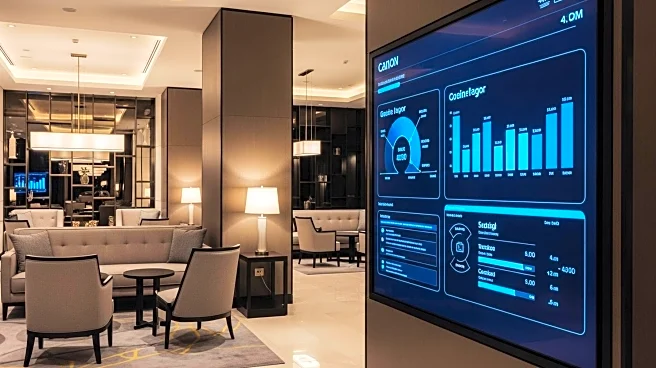What's Happening?
Hotels, resorts, and hospitality brands are increasingly leveraging real-time data to enhance guest experiences and drive return on investment (ROI). With leaner teams and tighter budgets, these brands are focusing on turning fragmented guest data into actionable insights. By analyzing past guest behaviors and loyalty data, marketers can identify key touchpoints for personalized upsells and cross-sells. This approach allows hotels to respond instantly to guest behavior, such as offering timely upgrades or personalized dining recommendations. The shift from static reports to real-time data activation is enabling hospitality brands to create more relevant guest experiences and improve business performance.
Why It's Important?
The use of real-time data in hospitality is crucial for maintaining competitiveness in an industry where guest expectations are continually rising. By personalizing guest interactions and offers, hotels can increase occupancy rates, boost ancillary revenue, and foster guest loyalty. This data-driven approach not only enhances guest satisfaction but also optimizes marketing spend, leading to higher ROI. As companies that personalize their marketing can significantly reduce acquisition costs and grow revenues, the ability to act on live signals is becoming a key differentiator in the hospitality sector.
What's Next?
Hospitality brands are expected to continue integrating AI and automation into their data infrastructure to further enhance real-time responsiveness. This will involve breaking down data silos and creating seamless connections between loyalty data, booking systems, and marketing platforms. As brands refine their strategies based on guest behavior insights, they will likely experiment with new automation workflows to improve conversion rates and repeat bookings. The ongoing cycle of connecting, activating, measuring, and refining data-driven strategies will help brands scale responsiveness and maintain a competitive edge.
Beyond the Headlines
The shift towards real-time data activation in hospitality also raises ethical considerations regarding data privacy and security. As brands collect and utilize guest data, they must ensure compliance with privacy regulations and maintain transparency with guests about data usage. Additionally, the reliance on automation and AI could lead to reduced human interaction, potentially impacting the traditional hospitality experience. Balancing technological advancements with personalized human touch will be essential for brands to maintain guest satisfaction and trust.










